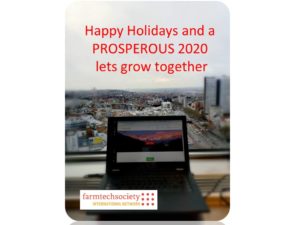Alaube is a start up founded by Alexandre Lefebvre. It supports project leaders who wish to integrate agriculture into the city or strengthen their sustainable development projects. Whether on topics related to urban agriculture, agroecology, permaculture, circular economy or even biodiversity in the city, ALAUBE can help to achieve these goals. We decided to have a chat with Alexandre and find out more.
FTS: Can you introduce yourself, your background, and some of your inspirations based on your work on conceiving your work as a consultant and also more specifically the idea of ABOUB, explaining why this approach can be an important step for any metropolitan situation in these times?
ALAUBE: Hi, I’m Alexander lefebvre. I’m a Bio-enginner – I’ve been urban farming for 10 years & own my project for 2 years. I also consult on urban ag at different scales. I’m an Urban Bee keeper, with some hives on a rooftop in brussels. I would like to help the network to grow. Good food produced in the city is new in my country, and we are stronger together.
I’m from Brussels and have always lived there, but other parts of family lived in rural areas. I wanted to go back to nature and agriculture, but not big ag. I did my thesis on vertical farming for natural swimming pools, like an aquaponic circulating system, but not to produce food. I then combined this with knowledge and work with green walls.
I have worked on redeveloping plant nursery – a big project that will have urban food production and restaurant and more!

FTS: Can you elaborate on what are the challenges of trying to establish your business and perhaps you could also elaborate on the interesting aspects?
ALAUBE:
Training – credentialed training would be interesting, but we’re not ready for that yet. Need to finish build and get everything ready. In the meantime we will continue with more informal training. Starting with around 20 people at a time. Limit would be about 100.
Pandemic: has definitely caused change, but we don’t know yet if that will be a big change or just a small one. Will we go back to normal? Change will accelerate after covid.
Fossil fuels: all of current ag is underpinned by the low price of fossil fuels. As this changes over time, change will accelerate very rapidly. Change will be unavoidable – I hope we will be ready!
FTS: Can you describe where you see yourself in 5 years from now?
ALAUBE: I think in 5 years I will have greater demand for consulting, and I will have built a multi-disciplinary team to help me to do that (for example architect, graphist, urbanist, permaculture etc). At the moment I do this on an ad-hoc basis. But as demand increases I can bring this in house to make a full scale consulting firm.
FTS: Have you experienced a change in the valuation of the social benefits of urban farming?
Member: As a consultant, I have seen a lot of demand from people who want to change careers, to something that will benefit the environment, like urban ag and bee-keeping. Not only people either. Lots of restaurants want to restart with a better proposition of quality and locality post-covid, even in some cases producing food on site.
Food definitely has social benefit. It can also be a medication if it is good quality. But it’s very difficult to measure the precise monetary value of these things

FTS: How do you see the public funding opportunities for Urban Agriculture in Brussels? Are they translating into equal benefits for the communities and do they pay attention to the new demand for victory garden activities?
ALAUBE: We need to find a solution to help urban farm, compared to rural farmers. Rural ag receives a lot of subsidies, which are not currently available to agriculture in the city. I think the municipal authorities in Brussels should at least try to level the playing field. Good food strategy is good for neighborhood scale projects, but not for serious city-scale growing.
Also, efforts to help urban ag projects to engage with schools, hospitals and other similar public sector buyers. This is hard because of the need to get to scale.
FTS: What do you believe are the most important challenges of Urban Agriculture going forward?
Member: Build a stronger network at international level. We are always looking for bigger projects with more actors. It is very good to build my network, particularly for me in french speaking countries. This will allow us to build bigger and more innovative projects. We can share ideas between countries.
FOR ALAUBE

Alexandre Lefebvre
A bioengineer in Agronomic Sciences with a specialized focus, a graduate of Gembloux Agro-Bio Tech, Alexandre Lefebvre has been active in urban agriculture and sustainable development issues since 2012, at the academic, associative and entrepreneurial level
We want you, our readers, to know more about who our members are and what they’re doing. So we put together the FTS finds out more series, to do just that!
——–



